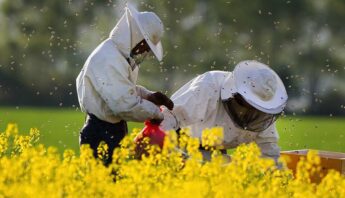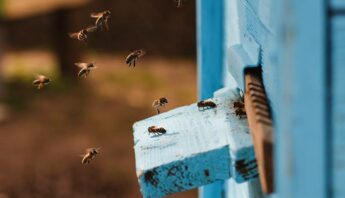For Immediate Release: May 15, 2014
Contact: Sara Knight, 415-625-9070, sara@panna.org
New bee loss data show continued, unsustainable declines
Federal officials and researchers released numbers today about annual bee losses with a mix of both good and bad news. While overwintering loss numbers weren't as dramatic as last year, annual loss numbers were still quite large — more than twice what is considered sustainable.
Researchers expanded the scope of this years survey because beekeepers were noting larger annual losses and declines linked to pesticide exposure and lack of forage in warmer months.
Independent science, including a study released just last week, continues to highlight evidence linking pesticides to ongoing bee declines — especially in compromising bee immune systems. Europe and New York state have already taken steps to restrict many bee-harming neonicotinoid pesticides.
Dr. Emily Marquez, PhD, staff scientist at Pesticide Action Network, released the following statement:
"The new survey released today captures the larger real-world challenges that beekeepers face. Losing more than one-third of hives annually is unsustainable.
While beekeepers have been able to keep mites in check over the winter, the problems with pesticide exposure, and potentially lack of healthy forage, appear to be the leading causes of bee declines throughout the year.
These numbers should cause EPA and other policymakers to redouble their efforts to protect bees from harmful pesticides and take swift, decisive action. With losses this large, bees and beekeepers can't afford to wait four more years for EPA to wrap up its review of neonicotinoids."







